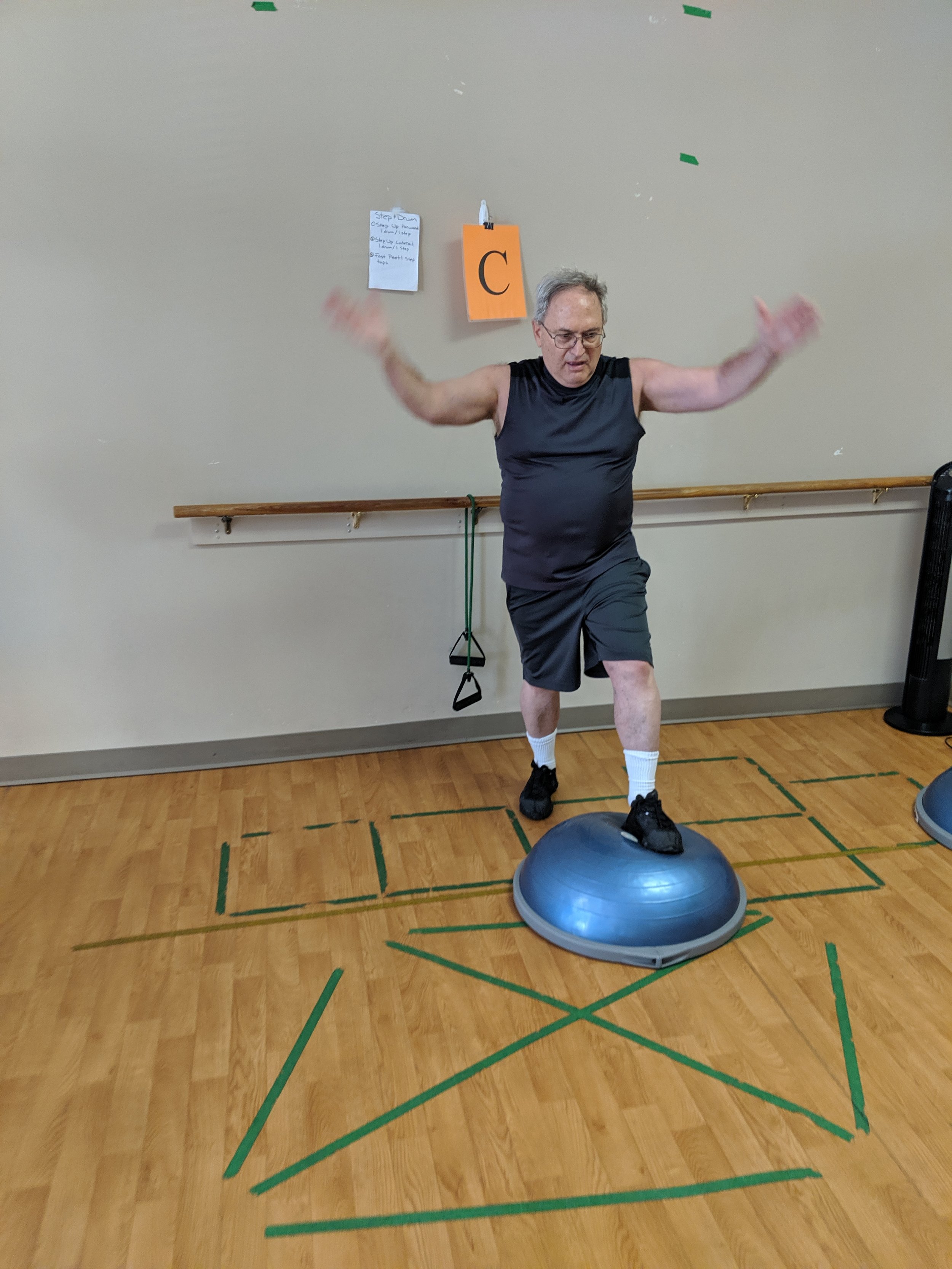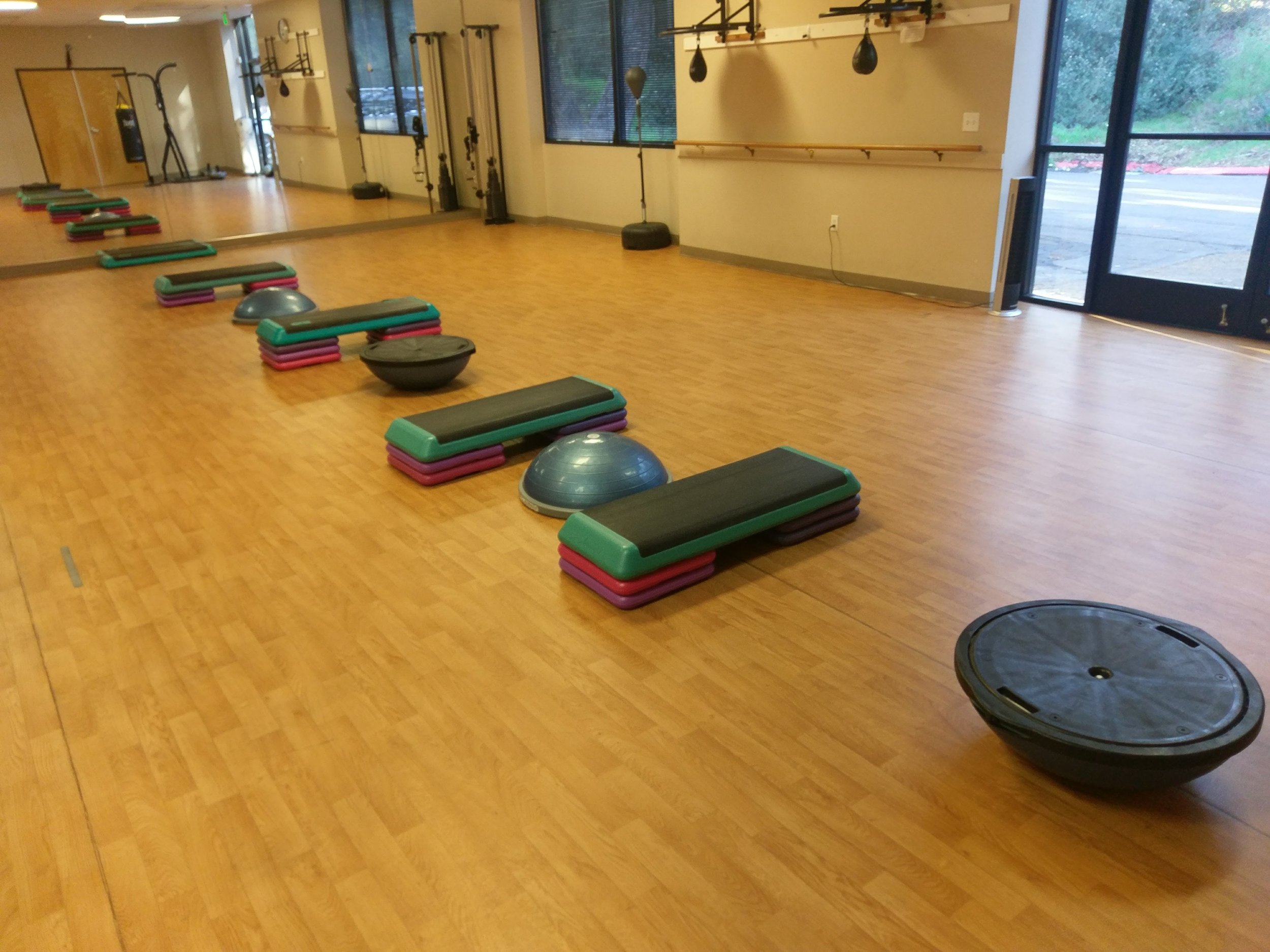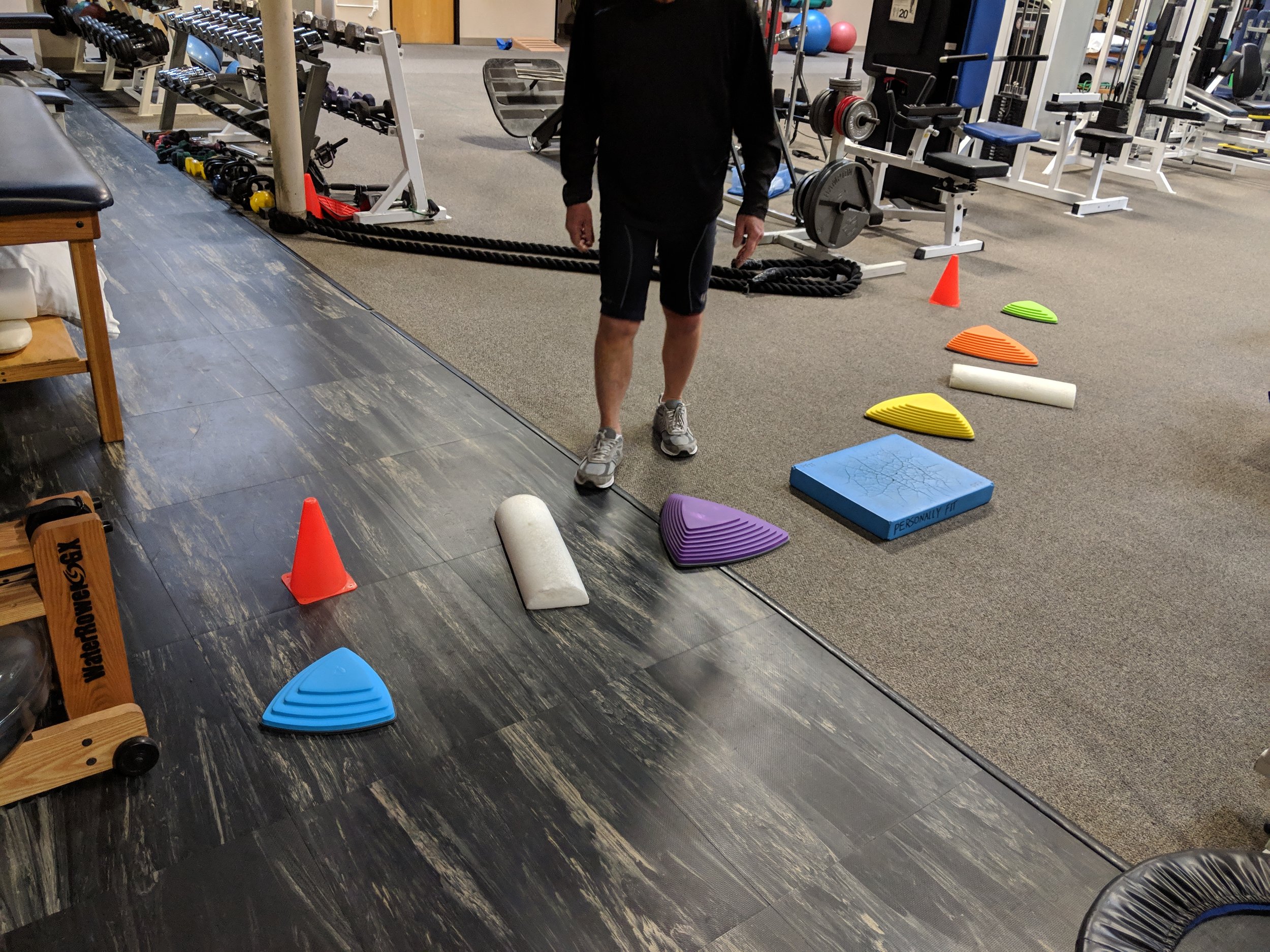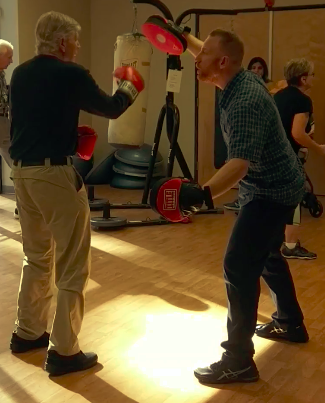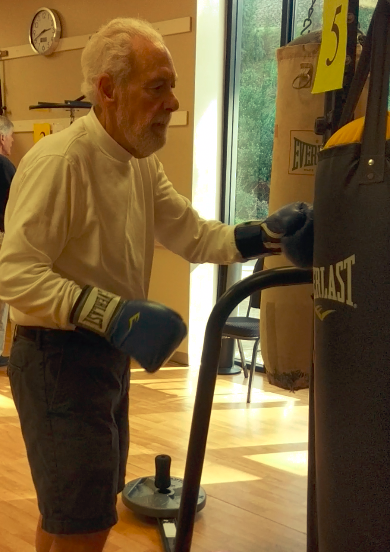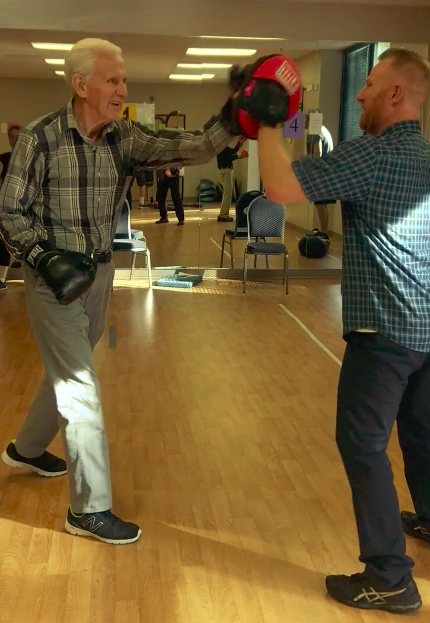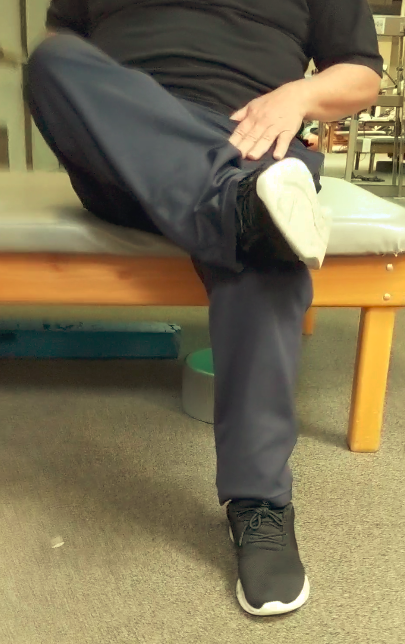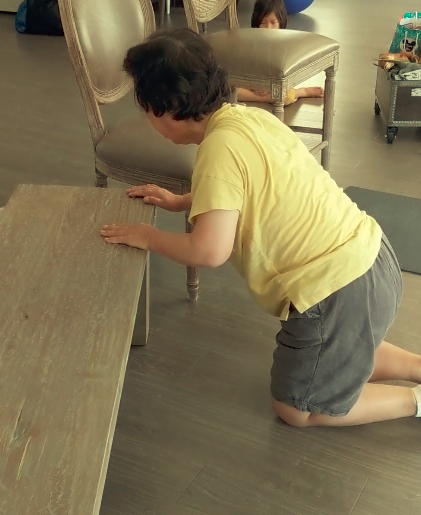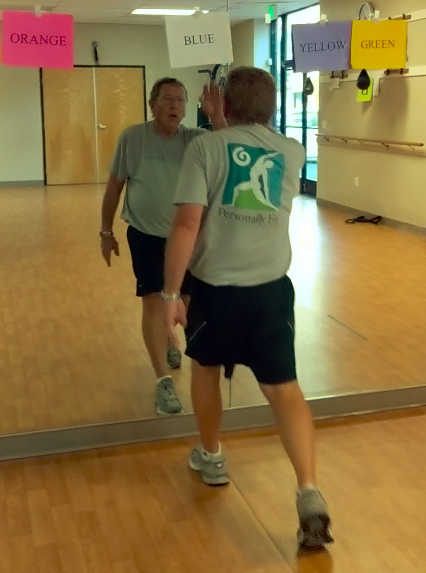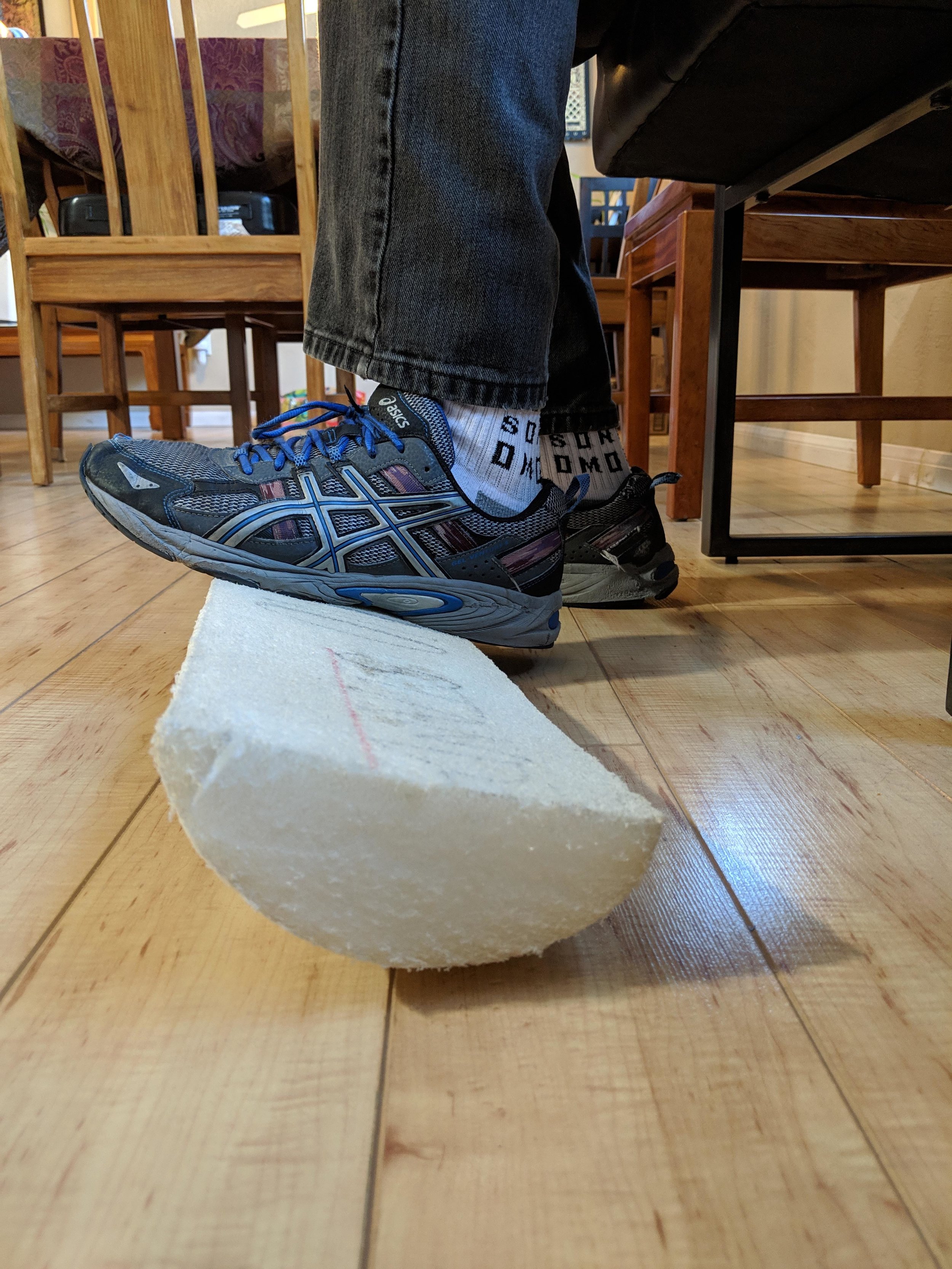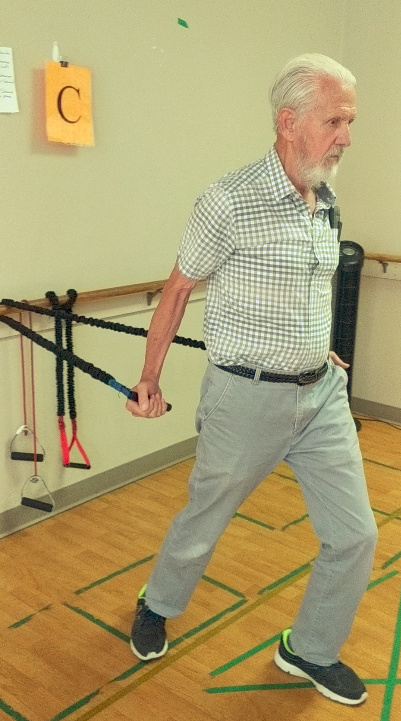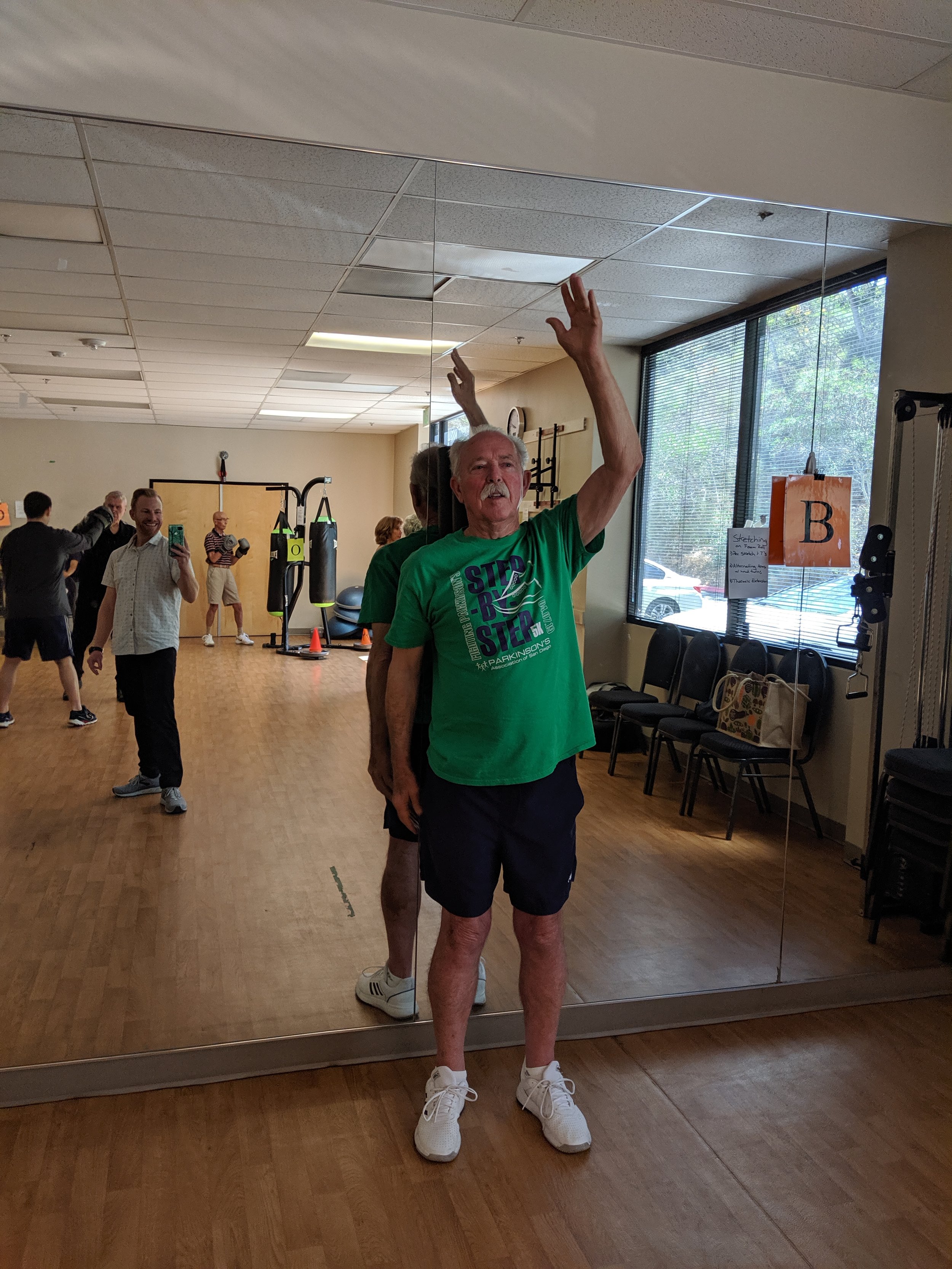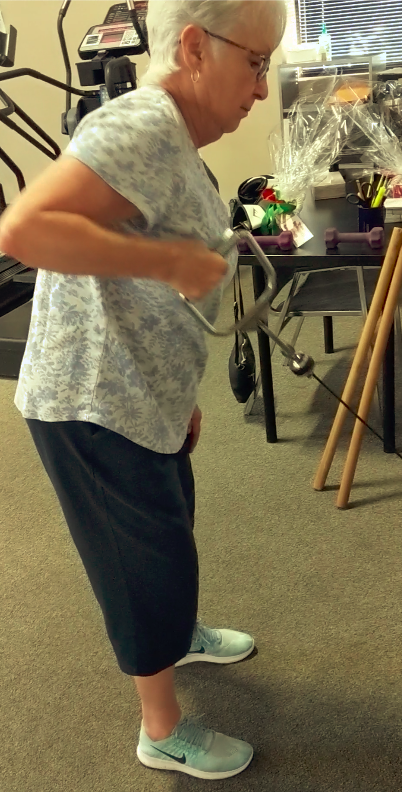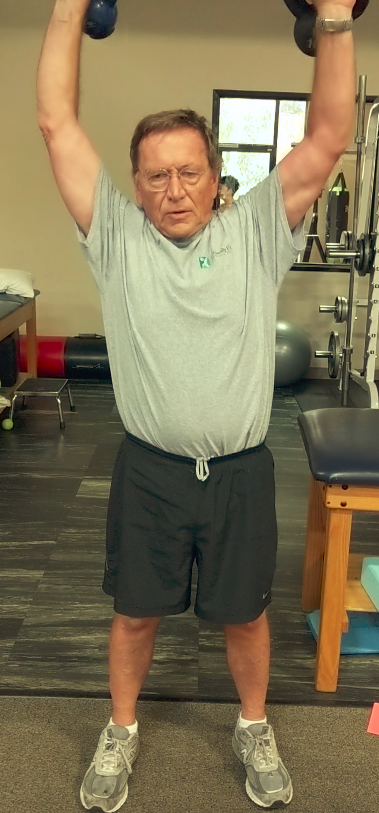Cerebral Motion. Using neuroscience to retrain the body to improve quality of life, slow progression, and regain independence.
Exercise Therapy Components
Balance
Balance can be improved; it just takes a little challenge or in some cases a big challenge. We train, practice, and educate the body during static and dynamic balance exercises.
Boxing
One of the best whole body and brain exercises one can do. Practically every aspect of Parkinson’s disease is targeted and challenged. Weight-shifting, balance, strength, and the coordination of it all make boxing a goal-based exercise in learning.
Cognition
Physical health is only half the battle. By challenging our minds, we can remain sharp, improve memory, and translate mindful engaged movements into a safer and more enjoyable quality of life.
Fall Prevention
Fall is a four letter F word we do not like to hear. We can teach you strategies to prevent falling, recognize situations where the potential for falling is higher, even the best way to fall. Everyone’s favorite is getting up and down off the floor.
Flexibility
General aging as well as Parkinson’s disease can result in stiff and tight muscles. Stretching is a standard portion of every session due to it’s importance for general health and wellbeing.
Gait
Walking is a gigantic component of one’s independence. Work with us to fine-tune the mechanics of walking and make this complex sequence of events into a simple cycle.
Posture
A stooped, or flexed, posture can be common as we age, especially in Parkinson’s disease. Learn strategies to increase the mindfulness that is necessary to remain in good posture.
Strength
Strength building enables us to live our lives to the highest quality possible from picking up grandchildren or picking ourselves up off the ground.
“See more Cerebral Motion by clicking on the links below to our YouTube channel or Facebook page”

